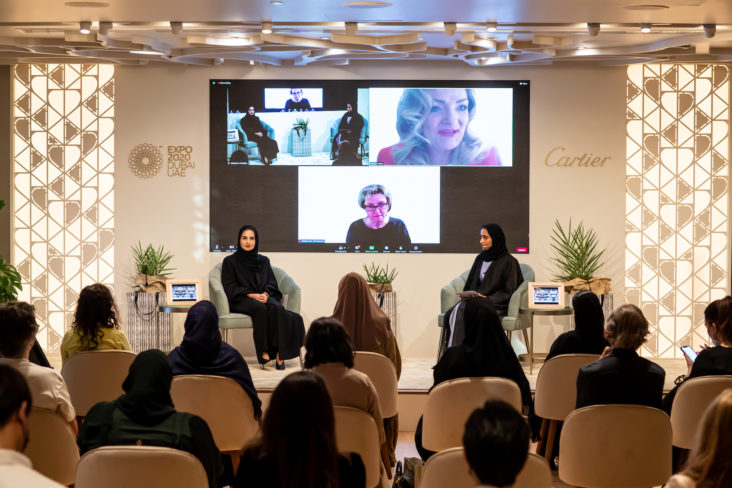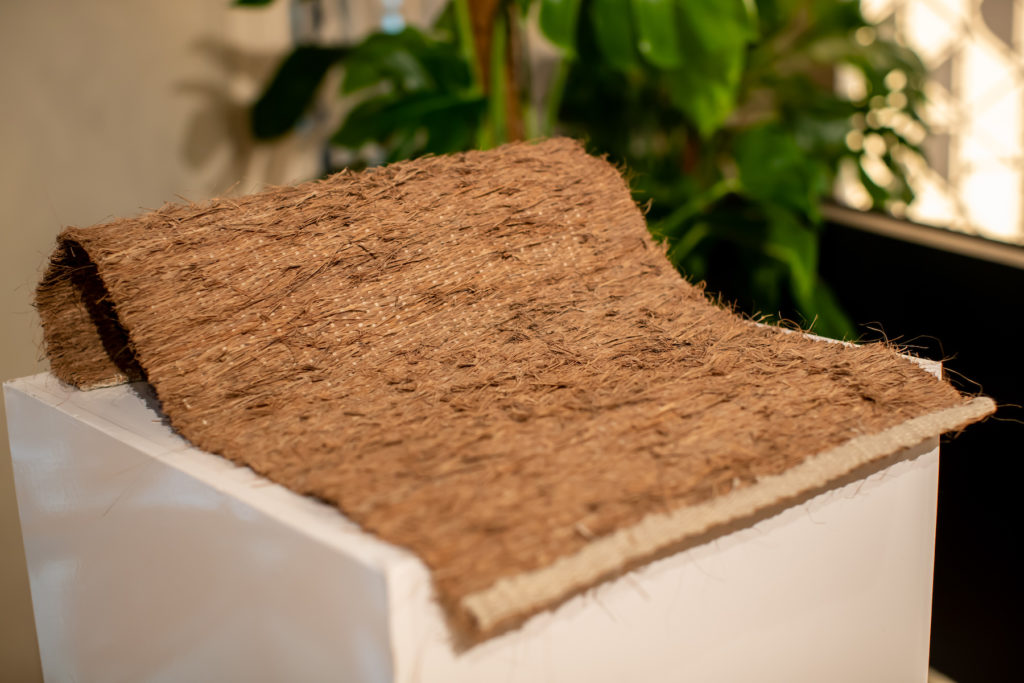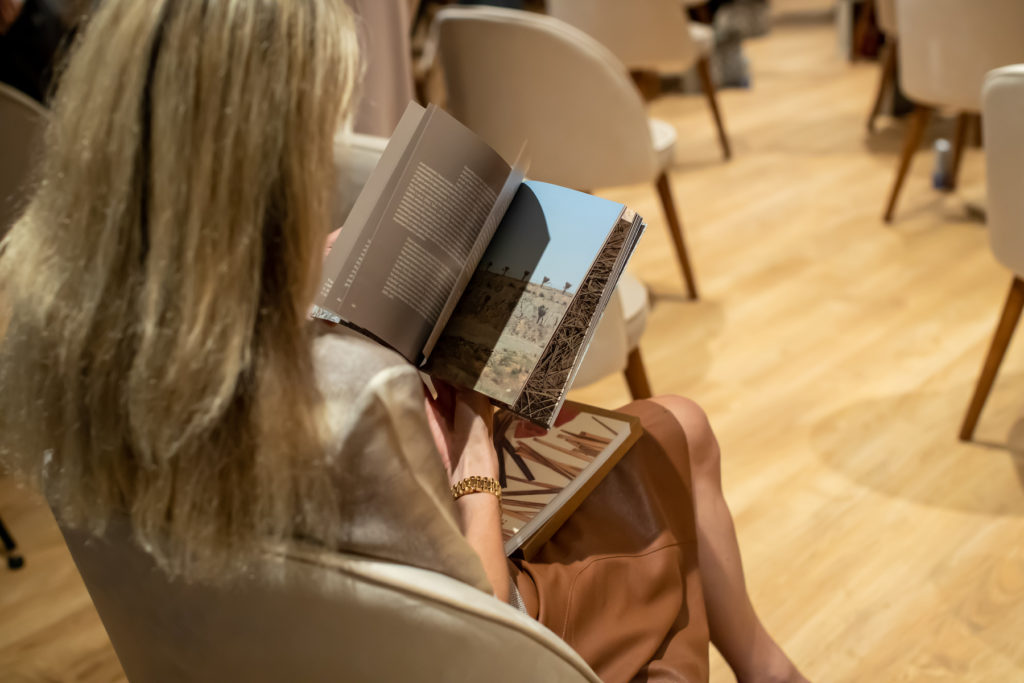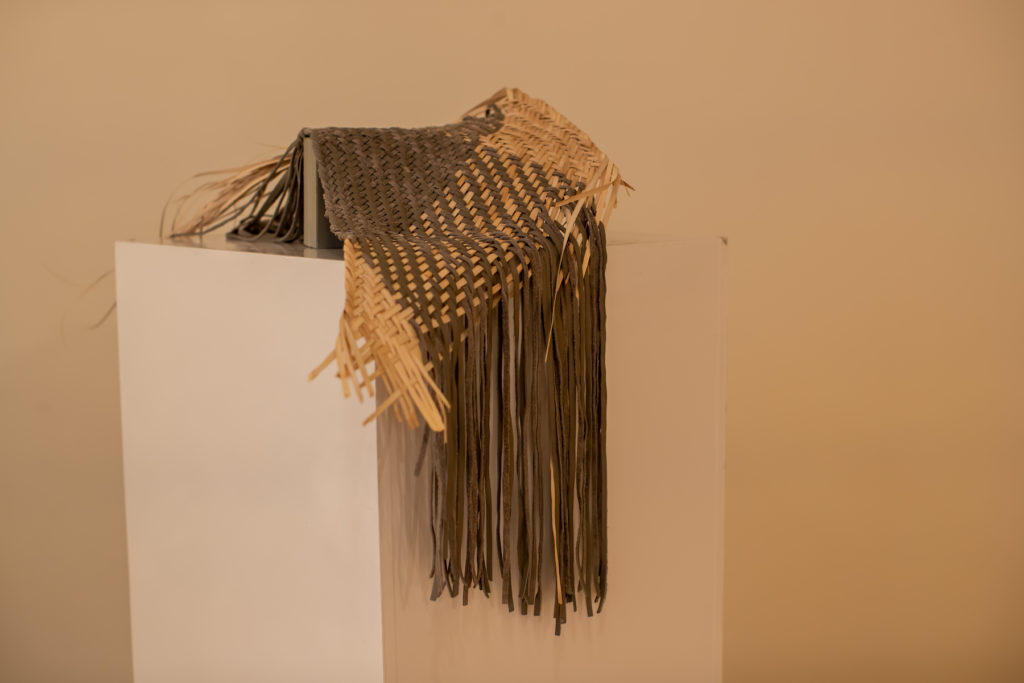Irthi’s Date Palm Textile Upholds Promise Of Circular Economy In The Textile And Fashion Industry, Say Experts At Expo 2020 Dubai

Citing the 7,000-year contributions of the date palm in the cultural history of the United Arab Emirates, the Irthi Contemporary Crafts Council (Irthi) – an affiliate of the UAE-based NAMA Women Advancement Establishment (NAMA), called for innovations in heritage crafts as it unveiled its research findings that led to the development of a palm textile prototype at a panel discussion held recently at Expo 2020 Dubai.
The advanced palm fibre research and efforts to document the craft practices led by Irthi were initiated under the guidance and directives of Her Highness Sheikha Jawaher bint Mohammed Al Qasimi, wife of His Highness the Ruler of Sharjah and Chairperson of NAMA. The panel session also explored how investing in the research and innovation of an indigenous material could shape the future of regional and international crafts and design markets.
Led by a distinguished panel of environment and culture enthusiasts from around the globe, the discussion titled,The Cultural Power of Sustainability,held at the Women’s Pavilion at Expo 2020 Dubai,reiterated the urgent need for the adaptation of traditional knowledge, and underscored the potential of Irthi’sresearch-led biodegradable date palm textile prototype in sustaining and advancing the craft, textile and design industries in the UAE, and furthering the Sustainable Development Goals envisioned under the UN 2030 Agenda.
Organised and led by Irthi, the discussion moderated by Shahad Al Hammadi, Senior Executive – Projects at Irthi, was held against the backdrop of black and white digital images from its research publications that revealed intriguing details of the fibres from four palm varieties, and which have been magnified from 40 to 3,000 times.
Prominent panelists at the session included Dr. Sandra Piesik, an award-winning architect, researcher and author ofAreesh: Palm Leaf Architecture, who headed the Irthi-led research for creating a viable date palm textile prototype; and Malgorzata Zimniewska, Associate Professor at the Institute of Natural Fibres& Medicinal Plants, Poland. Representing Irthi at the event was Emirati designer Ghaya binMesmar, whose area of interest is research and crafts development.
Discussing the transformative power of culture and its intrinsic contribution to sustainable development, panelists highlighted how innovations in date palm fibre extractions are creating new sustainable choices for the global audience and emphasised that intensive research into such indigenous materials could pave the way for the creation of a circular economy in the textile and fashion industry.
“As the impacts of climate change are felt across the globe, the date palm has become critical, if not existential to our lives today,” said Dr. Sandra Piesik, as she elaborated on the historical role of date palms in indigenous building and craft traditions and called for re-engaging with a material that supports the cultural continuity of the people of the UAE.
To adapt it to a contemporary context, Dr. Piesikemphasised that international collaborations are vital to create a strong supply chain as the date palm is today grown in more than 40 countries. “The development of small micro-industries across the MENA region would not only create new job growth but also enhance the indigenous knowledge rooted in the UAE culture,” she said.
Associate Professor Dr. Malgorzata Zimniewska who focuses on the development of technologies in natural fibre processing, stated that date palm textiles hold immense potential as a biomaterial of the future, especially with an ongoing shift towards the use of natural and sustainable materials and processes.
Apart from textiles, date palm fibres also have the potential for applications in construction as reinforcements and insulation, and for use in automotive and transport sectors, she added. “Focused research and greater investments in technology are essential to understand the strengths and many uses of date palm fibre, and to develop bioproducts that could replace synthetics and plastics.”
Stating how she continues to draw inspiration from the date palm in her design work, Ghaya binMesmar said that Irthi’s exploration of innovative ways of using the palm frond and incorporating it into the craft of Safeefah has “broadened the library of the craft in terms of designs and patterns and led to the integration of new material such as camel leather, felt, clay, and even glass, into the traditional craft form.”
“The research carried out at Irthi has revealed so much of the complexity of palm leaves, and highlighted its many unique characteristics, such as its brittleness, for instance. Our goal is to now create a softer and malleable palm textile ideal for all types of garments, and with this, Sharjah could make a breakthrough globally in the sustainable textiles market.”
Irthi launches two research-led publications at Expo 2020 Dubai
A key highlight of the session was the launch of two publications that document the Sharjah-based entity’s research on palm fibre and natural dyes.
The first publication focused on Irthi’s date palm research through an experimentation process conducted in Sharjah, Amsterdam and the UK, which is paving the way for the creation of sustainable woven fabrics and leading innovations inuse of date palm as a sustainable component for locally produced crafts. Irthi also unveiled its first date palm textile created from this initial phase of research during the event.
The second publication is a collaborative venture with the Alchemy of Dyeing and documents natural and sustainable recipes for dyeing palm leaves.
Irthi Contemporary Crafts Council will continue to undertake extensive research to curate and document the craft practices of the UAE to both preserve and elevate the craft traditions and enrich the knowledge of the future generations and artisans. Irthi’s ever-expanding archival collection is vital to sustain the cherished legacy of the nation’s cultural heritage.





